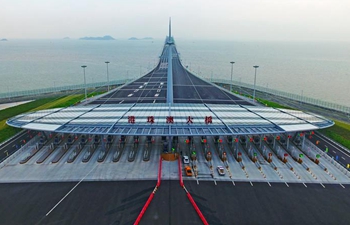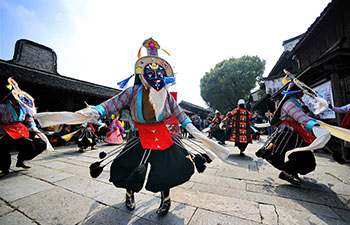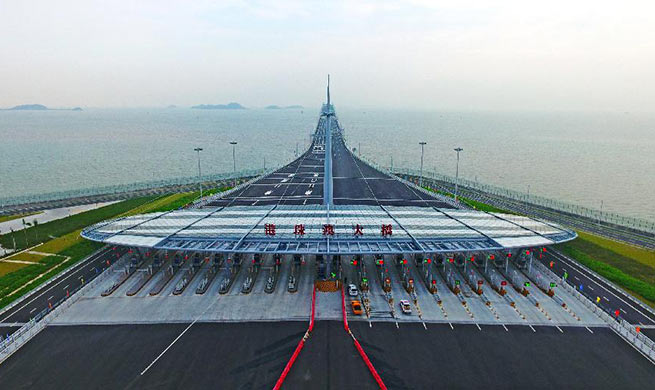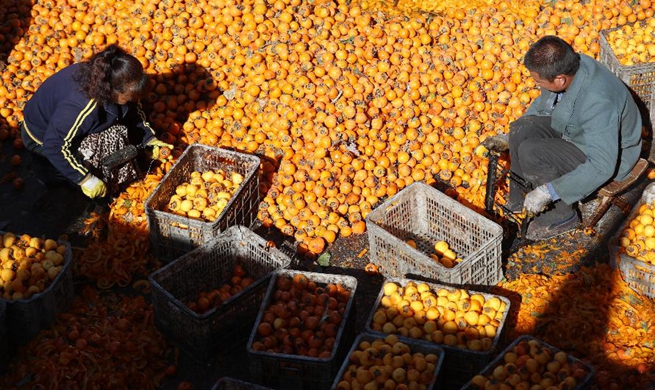UNITED NATIONS, Oct. 24 (Xinhua) -- Conflict in eastern Democratic Republic of Congo (DRC), including areas where deadly Ebola is being fought, has forced tens of thousands of people to flee for safety, including humanitarian and medical staff, the United Nations said on Wednesday.
The Office for the Coordination of Humanitarian Affairs (OCHA) reported the toll violence in the DRC has taken in the east of the sprawling nation, Farhan Haq, the deputy UN spokesman, told reporters.
In Beni, North Kivu, a flash point of the new Ebola outbreak, at least 12 civilians were killed last Saturday, he said.
All humanitarian activities were suspended, including at the Ebola Treatment Center, the spokesman said. It had no medical staff to attend victims for about three hours.
The same site had to suspend operation last month for several days because of direct threats against humanitarian actors, Haq said.
"There have also been serious concerns about infiltration by armed groups in the Ruzizi Plain and the regions along the shores of Lake Tanganyika," he said, adding that armed confrontations led to the suspension of humanitarian assistance in the areas between Kamanyola and Uvira.
"Insecurity and displacement are putting serious pressure on an already stretched humanitarian response in the country, where the number of people in need of humanitarian protection and assistance has nearly doubled over the last year to an estimated 13.1 million, one out of every seven Congolese," the spokesman said.
The DRC's Health Ministry this past August declared a new outbreak of Ebola virus in North Kivu province.
The ministry and the World Health Organization (WHO) reported on Monday that out of a total of 244 suspected cases so far, there have been 157 deaths. There were 209 confirmed cases and 122 confirmed deaths. The remaining number are regarded as probable cases of Ebola but had not yet been confirmed by the time of the latest tally.
The latest meeting of the WHO Emergency Committee on Ebola in the DRC one week ago determined a Public Health Emergency of International Concern should not be declared but that it remains "deeply concerned by the outbreak and emphasized that response activities need to be intensified and ongoing vigilance is critical," said the WHO.
Ebola, formerly known as Ebola hemorrhagic fever, is a severe, often fatal illness, with a death rate of up to 90 percent caused by Ebola virus, the WHO said. Current evidence suggests that fruit bats may be a host to the virus.
People become infected with Ebola either through contact with infected animals, usually following butchering, cooking or eating, or through contact with the bodily fluids of infected humans, the health agency said.
"Most cases are caused by human-to-human transmission which occurs when blood or other bodily fluids or secretions (stool, urine, saliva, semen) of infected people enters a healthy person's body through broken skin or mucous membranes," it said.
During an outbreak, those at higher risk of infection are: health workers, family members or others in close contact with infected people, mourners who have direct contact with bodies during burial rituals, the WHO said.
















